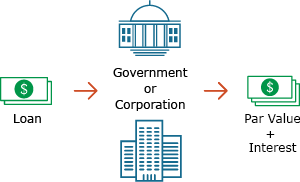Table of Contents
- Introduction
- Understanding I Bonds
- Advantages of I Bonds
- Current Market Conditions
- Factors to Consider
- Potential Risks
- Conclusion
- Frequently Asked Questions
Introduction
Investing is an essential part of building wealth and securing a stable financial future. As investors explore different options, one question that often arises is whether I Bonds are a good investment choice at the present moment. In this article, we will delve into the characteristics of I Bonds, evaluate their advantages, consider current market conditions, and discuss key factors to help you make an informed decision.

Understanding I Bonds
I Bonds, also known as Series I Savings Bonds, are a type of government bond offered by the United States Department of the Treasury. They are designed to provide a safe and accessible investment opportunity for individuals. I Bonds are known for their unique features, such as a combination of a fixed interest rate and an inflation rate component.
The fixed interest rate remains constant over the life of the bond, while the inflation rate adjusts semiannually based on changes in the Consumer Price Index for All Urban Consumers (CPI-U). This feature ensures that the bond’s return keeps pace with inflation, protecting your purchasing power.
Advantages of I Bonds
Protection against inflation: I Bonds offer a built-in hedge against inflation by adjusting the interest rate in response to changes in the CPI-U. This feature makes them an attractive option during periods of rising prices.
Low-risk investment: As a government-backed bond, I Bonds are considered a low-risk investment. The U.S. Treasury guarantees the repayment of the bond’s face value and the accrued interest.
Tax advantages: The interest earned on I Bonds is exempt from state and local income taxes. Additionally, if the funds are used for qualified educational expenses, the interest may be entirely tax-free at the federal level.
Flexible investment amounts: I Bonds can be purchased with a minimum investment of $25 and a maximum annual purchase limit of $10,000 per Social Security Number. This affordability makes them accessible to a wide range of investors.
Current Market Conditions
To determine if I Bonds are a good investment right now, it is crucial to consider the current market conditions. At the time of writing, the economic landscape is influenced by various factors, such as interest rate trends, inflation expectations, and the overall performance of financial markets.
Factors to Consider
Interest rates: I Bonds’ fixed interest rate component is set when the bond is purchased and remains unchanged throughout its term. It is essential to evaluate the prevailing interest rate environment to assess whether the fixed rate offered by I Bonds is competitive compared to alternative investments.
Inflation outlook: Inflation has a significant impact on the real return of an investment. Analyzing the current inflation outlook and projections can provide insights into how I Bonds may perform relative to inflation in the coming years.
Investment goals and time horizon: Every investor has unique financial goals and time horizons. Consider whether the long-term nature of I Bonds aligns with your investment objectives. If you require more immediate liquidity or have short-term goals, alternative investment options may be more suitable.
Diversification: Building a diversified investment portfolio is crucial for managing risk. Evaluate how I Bonds fit within your overall asset allocation strategy and consider their role in providing stability and preserving purchasing power.
Potential Risks
While I Bonds offer several advantages, it is important to be aware of potential risks associated with this investment:
Limited liquidity: I Bonds have a minimum holding period of one year, and if redeemed within the first five years, the investor forfeits the most recent three months’ interest. Therefore, they may not be suitable for those needing immediate access to their funds.
Interest rate risk: The fixed interest rate component of I Bonds remains constant over the bond’s life, meaning it may not keep pace with rising interest rates in the future. This could potentially impact the bond’s overall return compared to other fixed-income investments.
Conclusion
In conclusion, whether I Bonds are a good investment right now depends on various factors, including your individual financial goals, the current interest rate environment, and your assessment of future inflation trends. I Bonds offer unique advantages such as inflation protection, tax benefits, and low risk. However, it is crucial to evaluate your investment objectives and consider the potential risks associated with this type of investment before making a decision.
Frequently Asked Questions
Are I Bonds taxable?
- The interest earned on I Bonds is subject to federal income tax. However, it is exempt from state and local income taxes. If the funds are used for qualified educational expenses, the interest may be tax-free at the federal level as well.
Can I sell my I Bonds before they mature?
- While I Bonds have a minimum holding period of one year, you can sell them after that time. However, if you redeem them within the first five years, you will forfeit the most recent three months’ interest.
Are I Bonds a good choice for short-term investments?
- I Bonds are designed for long-term investing and may not be ideal for short-term investment goals due to their minimum holding period and potential interest penalties.
How often does the inflation rate component of I Bonds change?
- The inflation rate component of I Bonds is adjusted semiannually, in April and October, based on changes in the CPI-U.
Can I purchase I Bonds online?
- Yes, you can purchase I Bonds online through the U.S. Department of the Treasury’s website.
